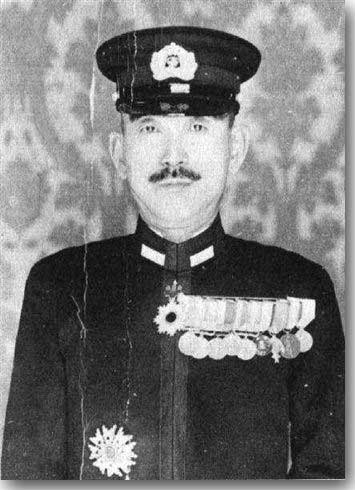|
Letters
Rear-Admiral Raizo Tanaka Hello. I am Canadian and my family was interned in Japanese Canadian internment camps during WW!!. As an incidental, my father and uncle were in the Canadian army and my uncle was a major in the 442 and served in Europe. A family story tells of my grandmother crying for weeks after having received an official-looking letter from Japan. It concerned the death of her brother, an Admiral in the Japanese Imperial Navy. Her name was Tanaka and I assume his was too. There is a book in Japanese that apparently one of my aunts had, as well as a distant relative in Japan. I have tried to track down either of these books, to no avail. I know nothing more about my family history in Japan. I found your blog by googling. I would appreciate any personal information you might have about Admiral Tanaka, especially details about his death. Thank you very much.
Edy,
Rear-Admiral Raizo Tanaka
Thank you for your E-Mail. Here are some brief notes about Rear Admiral Tanaka, his great success was in leading his destroyers against the USN at the Battle of Tassafaronga on November 30, 1942, and I will send you my writing about that battle separately. I am not sure about his death but will pursue that detail and write again. Rear-Admiral Raizo Tanaka, one of the greatest tactical commanders of destroyer forces in the Japanese Navy, also wound up in obscurity as a result of his participation in the Guadalcanal fighting. Although specializing in destroyers and torpedoes for much of his career, Tanaka had also commanded the battleship Kongo 1939-41. He commanded the close escorts for the invasion transports in both the Phillipines and Dutch East Indies, and participated in the Battle of the Java Sea as commander of the destroyers of the screening force. His real fame came in the Guadalcanal campaign, where he was the man credited with establishing what the Americans called the "Tokyo Express," the nocturnal running-in of supplies and reinforcements to the island, mainly on destroyers, with alarming regularity and success. He accomplished this as commander of the 2nd Destroyer Squadron, which at full strength usually had 10-12 destroyers plus Tanaka's flagship, the light cruiser Jintsu. These runs were not always successful, particularly when Tanaka was hindered by the need to escort transports. For instance, the second phase of Tanaka's attempts to land reinforcements during the Battle of the Eastern Solomons in late August 1942 had to be abandoned after US aircraft sank the destroyer Mutsuki, damaged the Jintsu, and also hit a transport. Tanaka's finest hour was the Battle of Tassafaronga (November 30, 1942). By now reduced to floating supplies ashore inside metal drums tied together in long strings and released to be carried in on the tide, Tanaka's force of eight destroyers was ambushed by US ships equipped with radar, but despite the disadvantages of force, surprise, and technology, quick reactions and the deadly "Long Lance" torpedoes allowed the Japanese to escape with the loss of one destroyer, while turning the tables and sinking the USS heavy cruiser Northampton, as well as damaging the cruisers Omaha, Minneapolis, and Pensacola. However, on December 12th, after a couple more supply runs had been completed successfully, Tanaka's destroyers were attacked by four American PT boats. The ship Tanaka was using for his flagship, destroyer Niizuki, was hit by two torpedoes and sunk (Japanese gunfire sank one PT in return), leaving Tanaka injured. Despite his successes against long odds, Tanaka had by this time made himself highly unpopular with many of his superiors, by his outspoken criticism of Japanese strategy and tactics in the Solomons. In particular, he had argued long and forcefully for the early abandonment of Guadalcanal. As a result, his wounds were used as an excuse to transfer him to Singapore, and in 1943 he was given a shore command in Burma. He was never again to command units at sea, despite his track record in combat. Best wishes, Mac. Gregory
I am staring at the picture and trying to determine if there really is a connection between me and that incredible strategist. His eyes look like my father's eyes, but it is hard to tell. The comment that he was outspoken and out of favour with superiors, sounds typical of my family too. The man who died was my grandmother's younger brother, and I am trying to dig up her birthdate. She was born in Fukushima Prefecture, on Kyushu Island, not of the samurai class like my grandfather, but from a fairly well-off merchant family. She talked very little of her past to her children, and said almost nothing about her brother and the military. They were shocked when she said he was an Admiral, but she said nothing else about him. It may have been out of deference to my father and uncles who were soldiers on the other side. Tanaka is a pretty common surname but I imagine there is a limited number of Admirals. The only clue I know about, is the book that an Aunt claimed that she had seen. As we have lost contact with Japanese family, there is no one to ask to confirm that Raizo-san was grandma's brother. I thank you once again for your information. Edy Goto |

